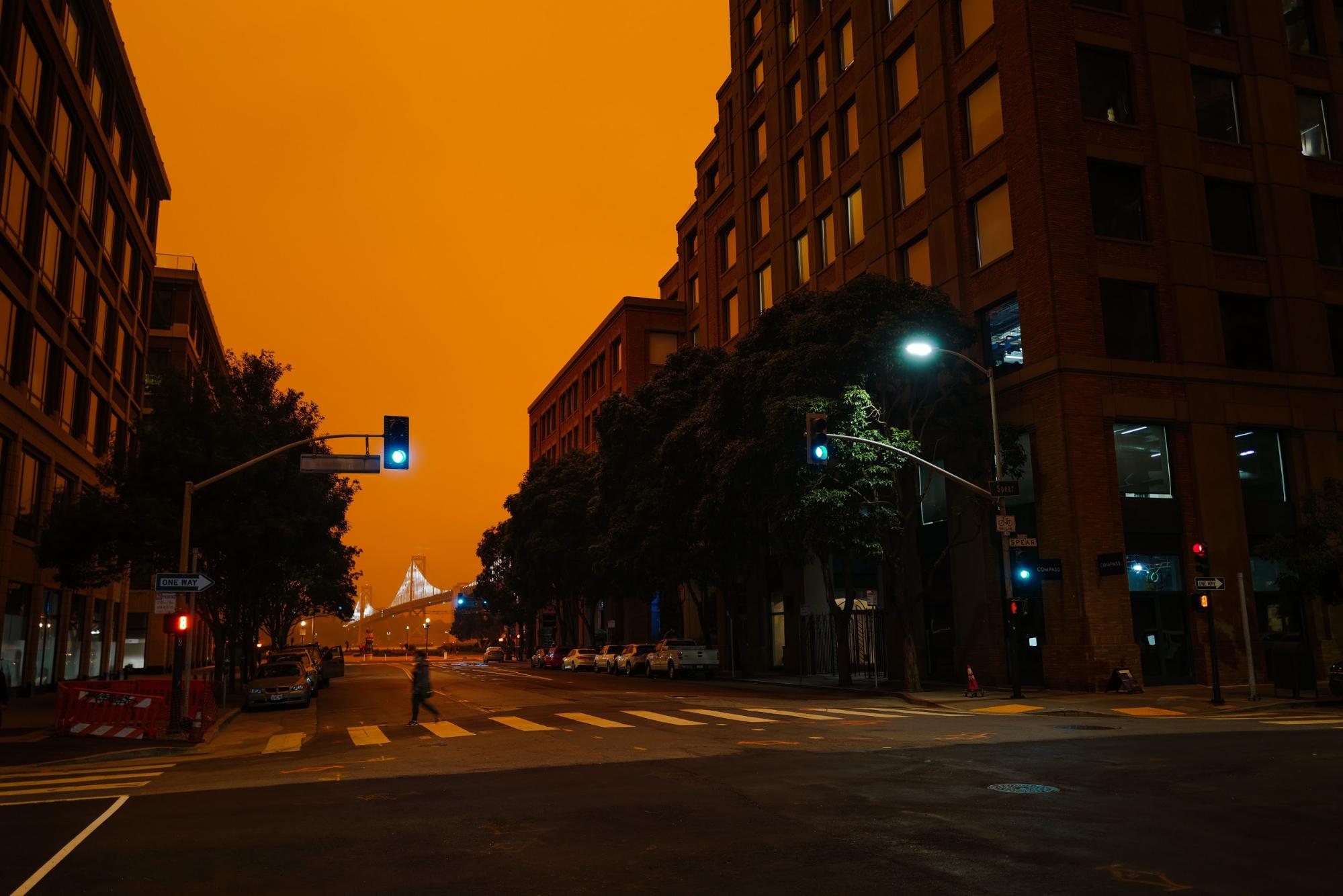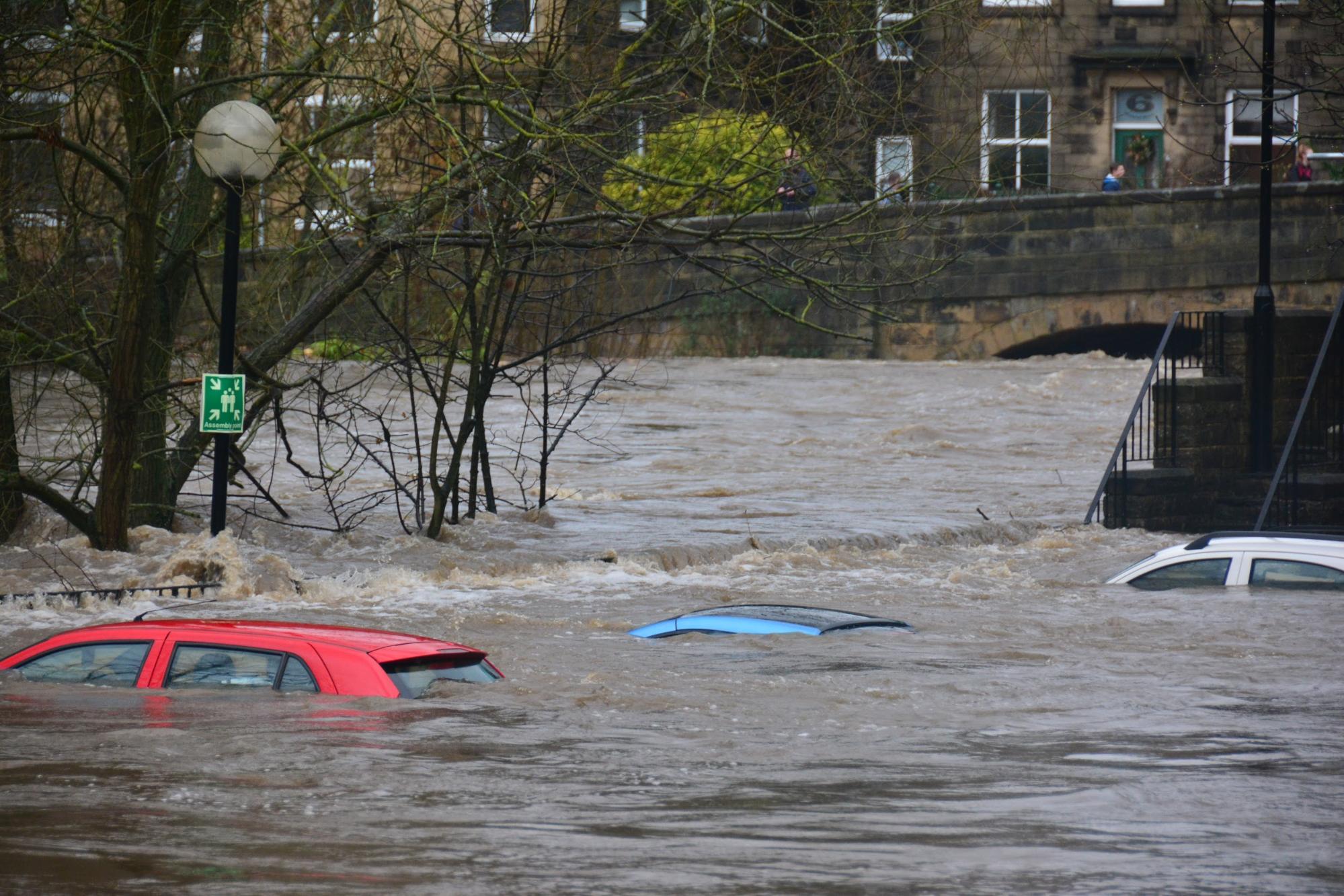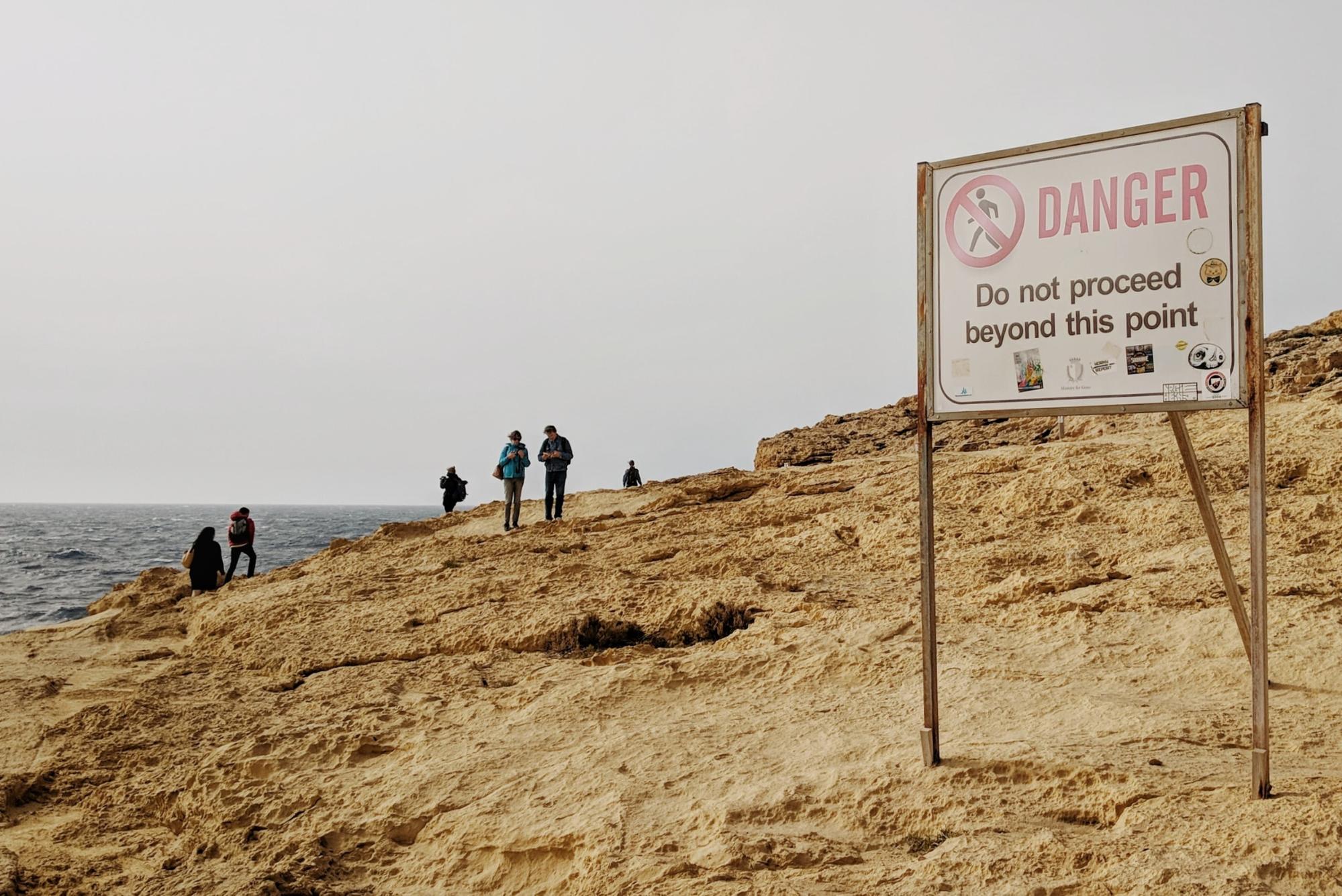
San Francisco Bay Area during the 2020 wildfires in California. Photo: Miklovi, Unsplash.
The climate and ecological crisis has arrived
We need immediate action to avoid unspeakable human suffering and irreversible damage to the natural world.
Governments worldwide are failing to act, consistently refusing to acknowledge the serious and imminent threat posed by this twin crisis.
Without leadership, citizens, corporations and institutions lack direction and purpose in the fight against this climatic and ecological nightmare that worsens with every passing day. This leaves all of us - and the planet we call home - in a desperate and dangerous position.
That is why “Tell the Truth” is the first of Extinction Rebellion’s three core demands.
We demand that governments everywhere tell the truth by declaring a climate and ecological emergency, working with the public, businesses and other institutions to communicate this urgent need for change.
What does the science say?
There is widespread consensus across the scientific community that rapidly changing climates and ecological collapse are not tomorrow’s problems: we are living them today.
In 2018, the Intergovernmental Panel on Climate Change (IPCC) warned that urgent action must be taken to keep the rise in global temperatures below 1.5°C above pre-industrial levels.
The panel outlined how a failure to achieve this benchmark will lead to catastrophic consequences for the global economy, and have a devastating impact on communities and ecosystems across the world.
They also confirmed that increasingly extreme weather patterns, rising sea levels and melting arctic ice are the direct consequence of the 1°C of global warming created by humans since the start of the industrial age.
In April 2020, the IPCC found that global temperatures are already on course to reach 1.5°C of warming between 2030 and 2052: a reality that would bring with it “dramatic damage”. This would rapidly accelerate the crisis as melting arctic ice releases trillions of tons of harmful gases into the atmosphere, further accelerating warming and its deadly consequences. More alarmingly still, our current rate of global emissions put us on the path to 3-4C of warming in just 80 years time.
Not only this, but global heating, along with habitat destruction, overconsumption and pollution are already feeding into the second harbinger of planetary disaster: a crash in global biodiversity.
In fact, several studies have suggested that we are now entering the Earth’s Sixth Mass Extinction event. The earth has experienced five of these events in the past 540 million years or so, and in each more than three-quarters of all species became extinct in a geological blink-of-an-eye.
This time, the rate of extinction is unprecedented: occurring at a rate 100 to 1,000 times faster than has occurred in the past.
What does this mean for us?

The Bingley Floods, Bradford, UK, 2015. Photo: Chris Gallagher, Unsplash.
When we speak about one, two, three, or four degrees of warming, it is easy to see such small numbers and dismiss the extent of the damage and disruption they mean for us, our families and friends, fellow humans and collective way of life.
This failure of imagination says nothing about what awaits us if we fail to act. Scientists predict that life on earth will change beyond recognition on a warming planet. In a world that is just 2C hotter, scientists found:
- Seas could rise an average of 56cm, or nearly 2ft.
- Thirty million people in coastal areas from Bangladesh to the United States could be flooded each year by 2055.
- 37% of the global population could face a severe heatwave at least once every five years.
- 388 million people could be exposed to water scarcity and 195 million people will be exposed to severe drought.
- Global per-capita GDP could fall 13% by 2100, while failure to meet the targets set in the 2015 Paris Agreement could result in global losses ranging between $150 trillion and $790 trillion - up to 7.5 times current global GDP.
(According to an analysis of 70 peer-reviewed studies by Carbon Brief.)
More than this, the United Nations and World Bank predict that there will be between 140 and 200 million climate refugees by 2050 as continued warming leads to increasingly frequent and intense natural disasters.
The results of the ecological crisis are just as grave for us and our planet. Countries are exploiting the planet’s natural resources at a pace greater than its ability to regenerate. If this continues, not only will we lose our natural wonders, but our planet will no longer be able to sustain the global economy and our quality of life in the decades ahead.
From the loss of insects to pollinate our crops, to the collapse of fish populations that feed billions of people globally, life as we know it will become significantly more vulnerable and volatile in the coming years without action to stave off further biodiversity loss.
As Sir David Attenborough, renowned British naturalist explains: “
This isn’t just about losing wonders of nature. With the loss of even the smallest organisms, we destabilise and ultimately risk collapsing the world’s ecosystems – the networks that support the whole of life on Earth.
Sir Robert Watson, Chair of the Intergovernmental Science-Policy Platform on Biodiversity and Ecosystem Services, explains the threat similarly:
The health of ecosystems on which we and all other species depend is deteriorating more rapidly than ever. We are eroding the very foundations of our economies, livelihoods, food security, health and quality of life worldwide.
This truth must be told and we must take action to avoid a series of irreversible tipping points that will permanently destabilise life on earth as we know it.
Climate denial, inaction and lies

Photo: Micaela Parente, Unsplash.
Despite clear evidence of the climate and ecological crisis, governments are falling woefully short at addressing it. Their lies to themselves, and to us, about all of this, represent one of the biggest obstacles to saving people like you and I from a terrifying new reality.
The 2015 Paris Agreement committed participating countries to curb and reduce their greenhouse gas emissions in order to keep global temperature rises “well below” 2°C since the pre-industrial era.
Yet a majority of world governments are failing to meet even these inadequate targets. Instead, they actively ignore both the present and potential impact of climate change and the ecological crisis, or propose policies which downplay the seriousness of the situation.
Our governments continue to support businesses who cling to a destructive business-as-usual-profit-at-any-cost suicide mission.
Inaction on climate change continues despite repeated, evidence-based warnings from scientists, beginning more than 40 years ago at the First World Climate Change Conference in 1979 and continuing at other international meetings since then - including the 1992 Rio Summit, the 1997 Kyoto Protocol and the 2015 Paris Agreement.
Here is a brief look at some of the major players on the international stage, as of September 2020, according to the Climate Action Tracker-an independent scientific organisation that measures actual government action against the 2015 globally agreed aim of halting warming below 1.5°C.
United States
The USA’s mitigation efforts are rated “critically insufficient” as it is in the process of withdrawing from the Paris Agreement, scrapping the Nationally Determined Commitments (NDCs) that formed the basis of their promise to act.
China
China’s climate actions are rated “highly insufficient”, based on its commitment of having 10% gas and 20% non-fossil fuels in its primary energy mix by 2030.
Chinese government pledges fall well short of what is needed to keep warming below 2°C, let alone limiting it to 1.5°C as required under the Paris Agreement, and put it on the path for 3-4°C of warming beyond 2030.
Note: As the world’s largest greenhouse gas emitter, accounting for approximately 27% of global greenhouse gas (GHG) emissions, China’s actions both at home and abroad have an enormous impact on global GHG emissions.
United Kingdom
The UK government’s current 2030 target of a 57 per cent reduction in GHG emissions below 1990 levels is rated as ‘insufficient’ for limiting warming to below 1.5°C.
Germany
Germany’s 55% emissions reduction target for 2030 is rated “highly insufficient” and in desperate need of strengthening if it is to be compatible with the Paris Agreement.
Russia
Russia’s climate commitment is rated “critically insufficient”, as it is consistent with a warming of over 4°C. This means Russia’s NDCs cannot be seen as a genuine attempt to keep warming below 2°C, let alone the Paris Agreement’s 1.5°C limit.
Note: Russia is the fourth largest emitter of greenhouse gases in the world — after China, the U.S. and India. Moreover, its per capita emissions are among the highest in the world — 53% higher than China and 79% higher than the EU, though 25% lower than the U.S.
Brazil
Brazil’s NDC for 2025 and 2030 is rated “insufficient” and inconsistent with keeping warming to 1.5°C as required under the Paris Agreement, and is instead consistent with warming between 2°C and 3°C.
India
India’s climate policies are rated “2°C compatible” by Climate Action Tracker, indicating that their climate commitment for 2030 is within the range of what is considered to be a fair share of the global effort, though still well short of what was agreed in Paris in 2015.
Australia
Australia’s NDC for 2030 is also rated as “insufficient”, indicating that the commitment made in 2017 is not consistent with holding warming to below 2°C, let alone limiting it to 1.5°C as required under the Paris Agreement, and is instead consistent with warming between 2°C and 3°C.
(Visit climateactiontracker.org for the latest updates).
But wait! There’s more…
When it comes to the ecological crisis, the world has not met even one of the targets set in 2010 to slow damage to the natural world, according to the United Nations. In fact, governments have missed all of their targets for two decades.
In the meantime, the warnings about the threat to biodiversity only grow starker. The World Wildlife Fund recently disclosed that 21,000 animal populations have declined by almost 70 per cent since 1970. “Catastrophic impacts for people and planet loom closer than ever,” the WWF warns. The IPBES Global Assessment, meanwhile, estimates one million animal and plant species are threatened with going extinct due to human action in coming years.
Tell the Truth

Extinction Rebellion protester, London, September 2020. Photo: Ehimetalor Akhere Unuabona, Unsplash.
Governments have delayed long enough. The advanced state of the twin crises unfolding today is proof that such empty rhetoric is simply not enough to even begin to address the situation we find ourselves in.
Worst case scenarios are now only avoidable if governments tell the truth about the climate and ecological crisis and act now.
Too many lies have been told for too long.
It is only by telling the truth that we can begin to achieve urgently needed action on both the national and international stages.
This is why ‘Tell the Truth’ is the first of XR’s three core demands.
Governments must tell the truth by declaring a climate and ecological emergency, working with other institutions to communicate the urgency for change.
Tell the truth and Act Now - our lives, and our planet, depend on it.